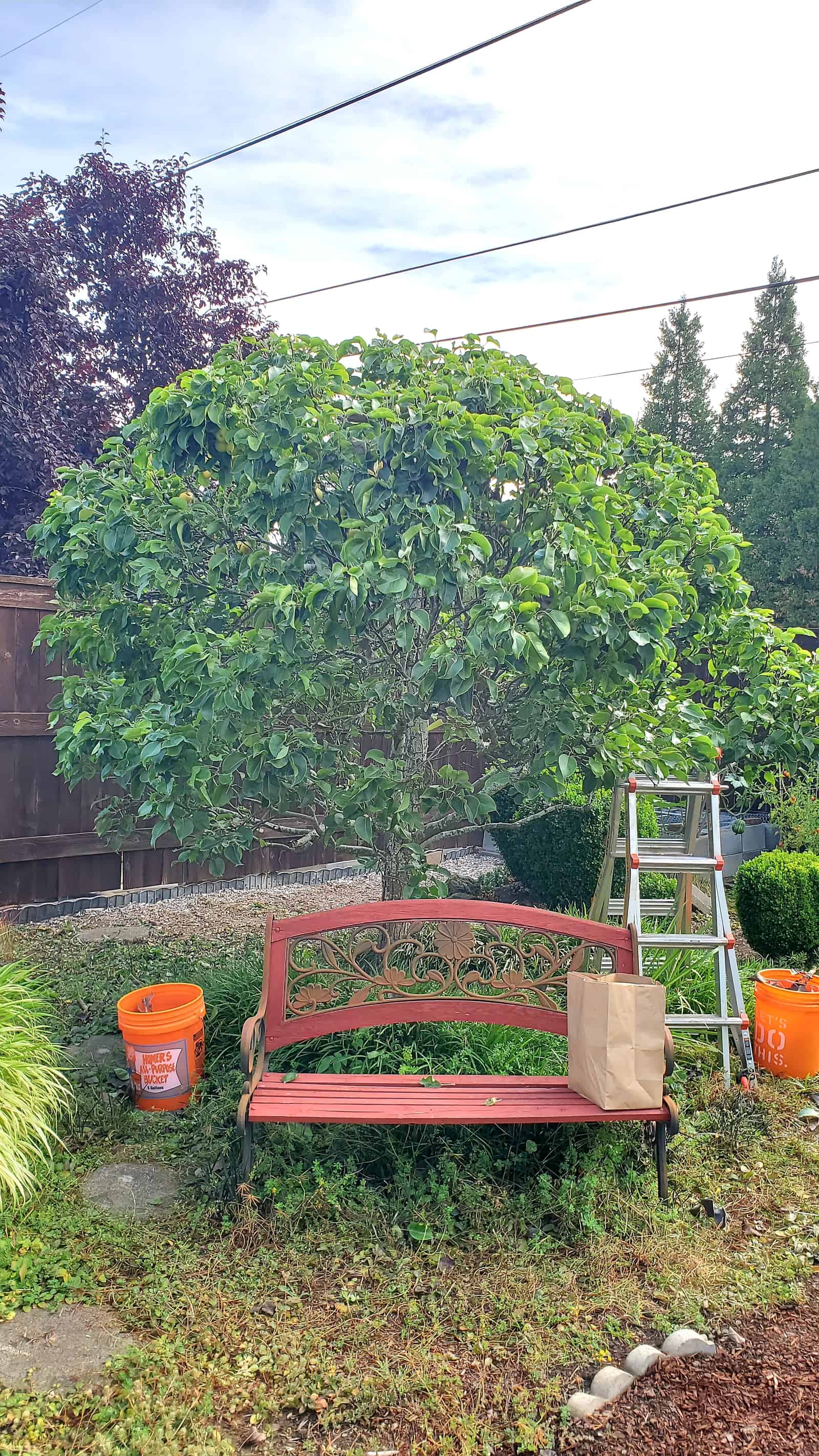
The Pear Tree
I really enjoy completing tasks. There is nothing too small or menial for the to-do list. Caring for my immediate environment involves constant problem seeking to avoid the need for large-scale problem solving. If I know what and where the typical issues are, I can pay attention to what might need work and relay this focus back to the bigger picture. Everything within (and including) the fence is my responsibility, and I use steady snapshots of surveillance to prioritize what to put forth and which areas need tending.
The first chore I did after the Thinkmovement CareLab was harvest fruit from the dwarf Asian pear tree that sits in my backyard. As I picked and sorted the ‘good from the bad’, I was flooded with connections into bigger things, and the grander scope of life in general. It seemed as if every single thing I did brought about a broader consideration and became an axon of application. So many red strings and such deep lines. Being brings such a delight to the doing.
The tree this year was overly productive. There was an abundance of fruit that bowed branches and nestled bunches of pears into the hearts of surrounding boxwoods. A few limbs broke from weight of bearing so much. There was a sadness to the tree that I personified, which was objectively a very natural phenomenon.
The window to pick the fruit was limited. Too early and the fruit wouldn’t be ripe and most enjoyable, too late and it would spoil and fall to the ground. As I looked at the hundreds of pears this little tree produced, I knew the gathering would take work. I wasn’t into pears at the moment and knew I would eat very few. It would have been easier to just let nature take its course, do nothing and let the fruit drop on its own, and then perform a single rake up once the rot set in. But that would have been so wasteful. Their value as food did not diminish because I personally wasn’t hungry for it.
The repetitive demands of picking fruit begs for systemization, but the care requires individual engagement. The position a pear was in, how tantalizing it looked, and its size all came into play in my judgement of how I should interact with it. I went after the large ones first because they were rare (and also because I prefer substantial portions to bite-sized tastings). It would look perfect, a dangling dalliant, but as I gently plucked and pulled it closer, I would notice a worm/ insect hole. It made me a bit angry that a bug had ‘ruined’ it. As if they had less right to it than me. As if they didn’t exist fully outside and made this very act their survive-lihood within a carefully balanced, reciprocal ecosystem. Us humans and our egos and biases. No wonder we ruin so much.
The tree itself can’t even be considered my tree. It was here before I moved in and laid claim to this place. It was planted because it was desired decades ago. I trim its branches because I like the aesthetic of neatness (and it’s easier to get pears from a more compact plant), and water it when the heat and drought come. Truthfully, though, I do nothing to to make these pears a reality. The tree does it all on its own. I appreciate that kind of independent effort. It makes me want to nurture it all the more (with least effective dose so it doesn’t become reliant).
Knowing when to step in and when to offer more time is an important skill set for an observer. To act or let be is a constant, unspoken series of realizations. When you are torn and unsure, you change your vantage point — getting closer or stepping back to make a more detailed or expansive examination. When possible, you simply ask and try to begin a conversation.
Such a dialogue is often internal. Which matter most? How can I do this easier? What patterns can I pick up on to establish a schema? Are expectations ruining the experience? And then, perhaps the most perplexing question, now that the work is finished and the job is complete, what will I do with all I’ve gathered?
Who is willing to accept what I have to offer?
The yardwaste bin took a lot of the less-edibles. Small assortments when into lunch bags for my neighbors. (They were home and stood and talked with me a while about non-pear things, a rarity in this door-closed culture). I still had three produce boxes full, so I took the load to the local Mission. They were pleasantly surprised at receiving such a bounty for their masses. After I declined a reciept and began to walk away, one smiled through his eyes and said, ‘God Bless you’. With no sense of self-righteousness and in every sincerity, I thought, He has.



